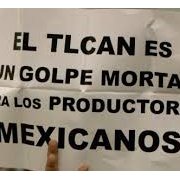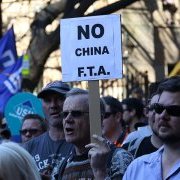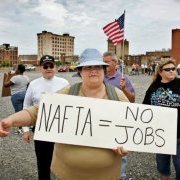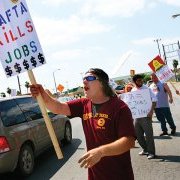16-Feb-2017
Local Futures Blog
Local Futures’ Isabel Marlens discusses why many people know so little about trade issues, and what can be done about it.
30-Jan-2017
Our World Is Not For Sale
The documents include the core text and annexes
24-Oct-2016
In These Times
US unions might use the US-Korea Free Trade Agreement, which includes a clause designed to protect labor rights, to assist their Korean allies striking against government “reform” proposals that would make it easier for employers to fire workers, weaken seniority protections won through collective bargaining and privatize some state-owned industries.
28-Sep-2016
Global Labour Column
For decades, labour has been fighting purely defensive battles against the neo-liberal trade and investment agenda; we lack an agenda of our own. Lost ground will not be reclaimed on what is fundamentally hostile territory, argues Peter Rossmann of the IUF.
22-Sep-2016
American Prospect
The new president needs a fresh approach to trade.






















